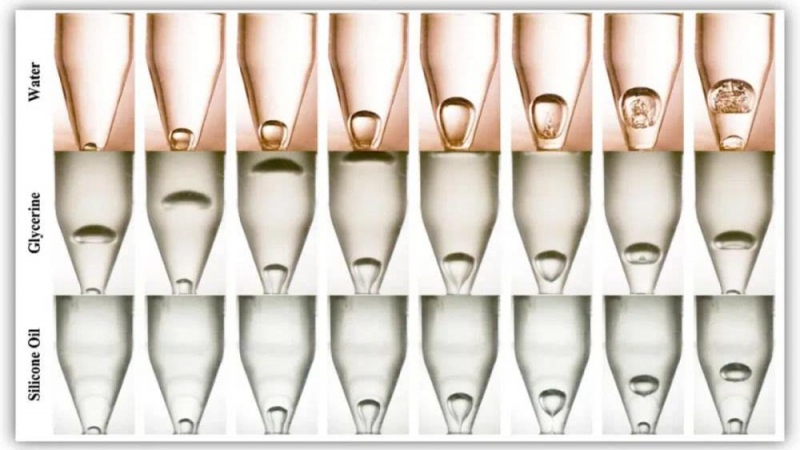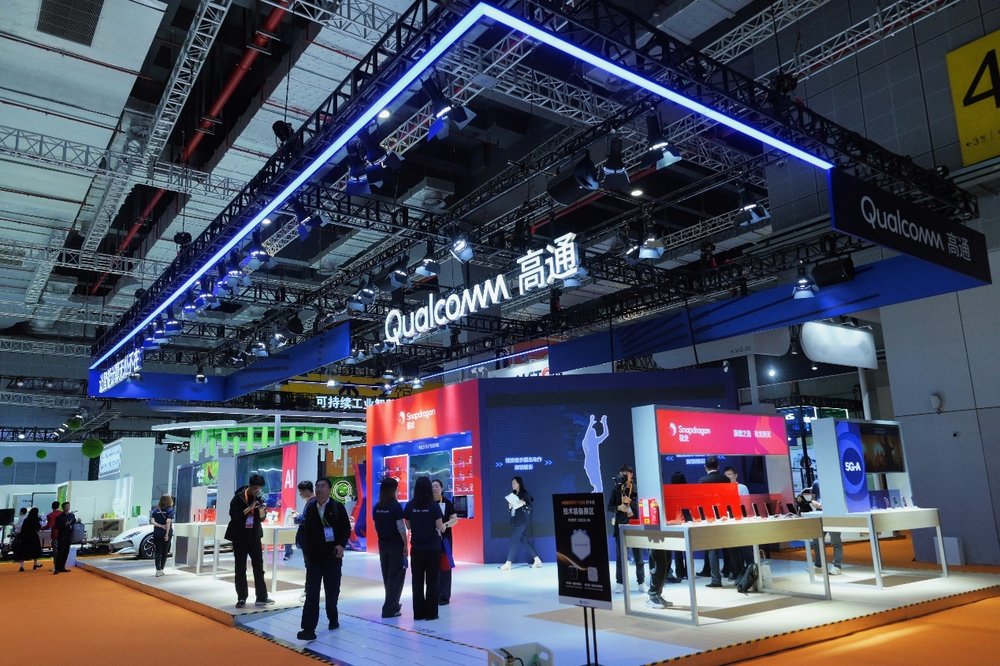
来历大众号:科研圈
怎样倒饮料速度最快?从生活经验能够发现,歪斜瓶子能更快地倒出饮料,可是假如将瓶子整个倒过来,瓶口会发生气泡,而且饮料或许发生喷溅。对这样的一个问题的研讨或将对饮料职业和化工厂带来启示。
图为气泡在不同流体中的时刻演化,留意每次吹完泡泡后排出的形状。图片来自:Lokesh Rohilla
来历AMERICAN INSTITUTE OF PHYSICS
翻译 吴娜
审校 戚译引
你调查过倒饮料的时分瓶子是怎样排空的吗?印度理工学院(Indian Institute of Technology Roorkee)的研讨人员探求了怎么让瓶子更快地倒空,这对饮料业以外的许多范畴都有广泛的影响。
几个世纪以来,人们对气泡进行了广泛的研讨,包含列奥纳多·达·芬奇(Leonardo da Vinci)前期的研讨成果。达·芬奇有一个闻名的发现,即气泡呈正弦状上升。瓶口气泡发生的的动力学取决于液体的热物理性质、瓶体几许形状及其倾角。这些参数无可避免地交错在一起,使得空瓶动力学(bottle-emptying dynamics)成为气泡物理学家的下一个前沿研讨方向。
在近期的 AIP 旗下期刊《流体物理学》(Physics of Fluids)中,Lokesh Rohilla 和 Arup Kumar Das 经过高速拍摄剖析商业饮料瓶中的气泡动力学,探究了这种现象。图画剖析使他们能够将各种参数概念化,如液膜厚度,气泡长宽比,上升速度和瓶子排空形式。
Rohilla 说:“瓶子里的气泡动力学太杂乱了,很难研讨,所以咱们把气泡界面成长分为不同的阶段来了解。”
众所周知,假如你增大瓶子的倾角,瓶子倒空的耗时会缩短。这添加了所谓的气泡缩短频率(bubble pinch off frequency),相对增量取决于流体的热物理性质。
“咱们的试验标明存在一个临界倾角,在此之后,持续增大瓶子倾角也不会令瓶子排空时刻持续削减,”Rohilla 说,“这是因为空地的饱满构成的,在瓶口处,液体周围的空气以歪斜的视点占有了空间。”
研讨确认了两种不同的倒空瓶形式。在一种形式下,因为瓶内气泡高频缩短,液体排空速率添加。在另一种形式中,瓶内气泡体积增大,但发生频率相对较低,这也能使得液体排空频率添加。
Rohilla 说:“咱们还发现,当一个笔直倒置的瓶子排出液体时,会发生密封的气泡。与直觉相反,密封气泡与液体别离的点发生在瓶口之外。此外,在无粘性流体中因为几乎没有内摩擦,液体层变薄,故而存在激烈喷发;而在粘性流体中彻底不存在这种喷溅,气泡存在可控的周期性。”
密封气泡的构成。图片来自:Lokesh Rohilla
这项作业证明了瓶子的几许形状和热物理性质在缩短瓶子排空时刻方面发挥着效果。
Das 说:“咱们我们能够经过调整瓶子的几许形状来操控瓶子的排放形式。直观的、针对特定产品设计的瓶子将能更好地操控其排空速率。”
这种对瓶子几许形状更深入的了解,将有助于饮料工业和化工厂等实践使用。
论文信息
【标题】Fluidics in an emptying bottle during breaking and making of interacting interfaces
【作者】Lokesh Rohilla and Arup Kumar Dasa
【时刻】07 April 2020
【期刊】Physics of Fluids
【摘要】An experimental effort has been reported in the present study analyzing the fluidics during the emptying of a bottle. The viscosity of the containing liquid and the orientation of the bottle while emptying are varied to obtain different emptying modes. Stages during the emptying of a vertical upended and an inclined bottle have been demarcated based on prompt flow features. Fluidic phenomena such as formation and pinch-off of an encapsulated bubble, ejector jet, flooding, and stratification have been observed in a vertically upended bottle. The rise velocity, collapse dynamics, and growth rate of the bubble at the bottle mouth are affected by the angle of inclination and mainly viscosity of the emptying liquid. Two distinct bottle emptying modes have been identified in one of which the discharge rate is increased due to a high-frequency pinch-off of air bubbles inside the bottle and in another mode due to an increase in the volume of the pinched-off bubble at a comparatively lower frequency. The interaction of dominant forces during the emptying process has been established by quantifying Reynolds number, Weber number, and Bond number. For all emptying liquids, bottle emptying time reduces linearly up to a critical angle of inclination, θcrit ∼ 20°, and further follows an asymptote. We hypothesize that the transition between the linear regime and the asymptotic regime is due to the saturation of the voidage of the air at the cylindrical section of the bottle mouth. Furthermore, the geometry of the bottle also facilitates the growth rate of the bubble inside the bottle at θcrit.
来历:科研圈
修改:米老猫






